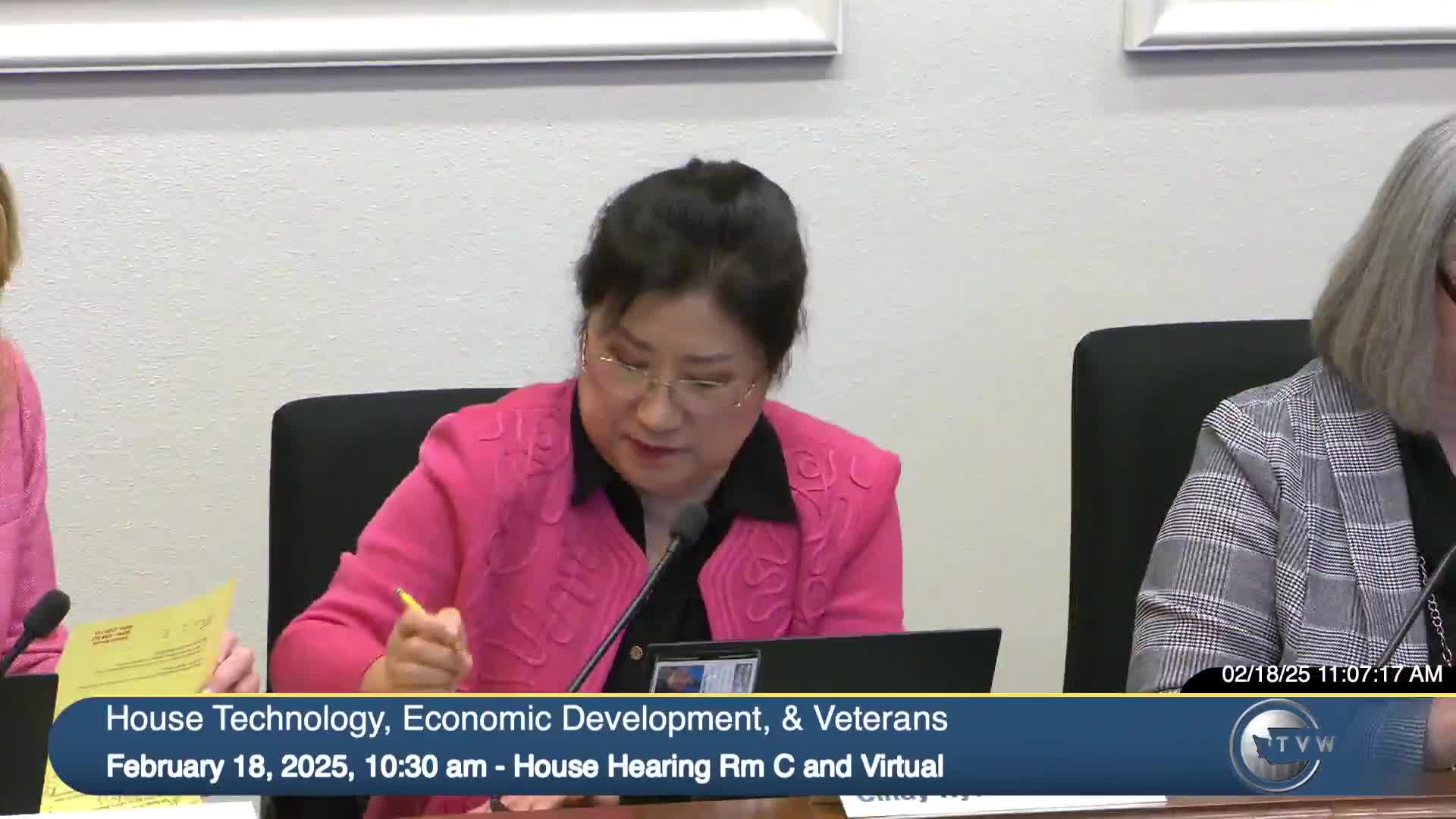Committee sends digital-equity bill forward after restoring broadband goals and updating outreach language
Get AI-powered insights, summaries, and transcripts
Subscribe
Summary
Substitute House Bill 1503, relating to digital equity and broadband goals, was reported out of committee after adoption of two amendments that reinstated statutory broadband goals and changed outreach language to 'unserved and underserved' communities; the committee recorded a 9-4 vote in favor.
The Technology, Economic Development & Veterans Committee on Feb. 18 voted to report substitute House Bill 1503 out of committee with a due-pass recommendation after adopting two amendments that reinstate statutory broadband goals and revise outreach terminology.
Emily Poole, committee staff, summarized the bill and two amendments. Amendment Pool 103 (by Representative Ryu) restores state broadband goals for 2024, 2026 and 2028 and removes a target that had been scheduled for 2030; the amendment also requires a review and update of goals by 2028 with input from stakeholders. Amendment Pool 102 (also by Representative Ryu) replaces the bill’s earlier phrase “hard to reach and low income communities” with the federal standard language “unserved and underserved communities and populations.”
Representative Paul and others argued for digital-equity and adoption measures, noting the importance of broadband for education, health and economic development. Representative Waters said she would vote no, citing turnover and operational issues within the state broadband office and caution that policy changes might slow BEAD implementation. The committee adopted both amendments and then voted 9 ayes to 4 nays to report the substitute bill out of committee.
Clarifying detail: During debate, a legislator referenced anticipated federal BEAD funding, stating an expectation of roughly $1.23 billion over five years to reach unserved areas; that federal funding figure was cited as context for state planning.
Why it matters: The bill addresses digital equity, not only infrastructure but outreach and adoption; restoring statutory goals and using standard federal terminology could shape state coordination with federal broadband programs.
Ending note: The substitute will proceed with a due-pass recommendation; members said further work on implementation and coordination remains necessary.
